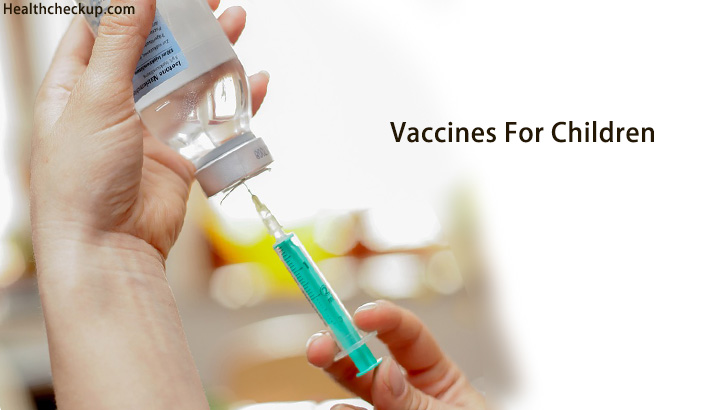Vaccination for children is important for their health. A substance called a vaccine is given to the child. Vaccination is also called Immunization. There are a number of reasons to vaccinate your child. Governments have their published vaccination schedules for their healthcare systems. Even if a disease has been eradicated in your country, international travel may lead to an outbreak. When your child is not vaccinated, they could get the disease from a traveller, or when they travel themselves.
The routes of administering vaccines are intra-mascular injection, intra-nasal, Oral, Intra-dermal and subcutaneous injection. Only a qualified medical practitioner is allowed to administer a vaccine. Medical practitioners are trained to give full disclosure to the guardian. They should tell you the vaccine they are giving, why they are giving it and how they will administer it before they vaccinate your child. Medical practitioners are well trained in picking the site to vaccinate your child.
In some cases, children undergo vaccination as part of international travel requirements that must be followed by all travellers including adults. In such a case, make sure that the medical history of the child; especially vaccination records are available to the medical personnel who will carry out the immunization.
List of Vaccines for Children by Age
Vaccines are given to children by age. Immediately after birth, your baby will be started on newborn baby vaccination. A vaccination schedule is followed for all children. It informs and helps track what vaccination is due to your child based on their age.
The first vaccine given to a baby is the Hepatitis B vaccine at birth. Recommended vaccinations start with a newborn baby and end in adulthood. Here is a list of vaccines for children by age and the vaccine administered.
- Birth: Hepatitis B Vaccine (HepB). The first dose of this vaccine is best administered to the newborn not more than 24 hours after birth.
- 1-2 months: Second dose of Hepatitis B vaccine.
- 2 months: Diptheria vaccine (DTaP), Influenza Type B vaccine, Poliovirus vaccine(IPV), Pneumococcal Conjugate vaccine and Rotavirus (RV) vaccine.
- 4 months: Second dose of Diptheria, Influenza Type B (Hib), Poliovirus, Pneumococcal and Rotavirus vaccines.
- 6 months: Third dose of diphtheria and pneumococcal (PCV) vaccines. As needed, the third dose of Influenza and Rotavirus vaccines may be administered.
- 6-18 months: Hepatitis B vaccine and inactivated polio vaccine.
- 12-15 months: Hib, PCV, Chickenpox (Varicella) amd MMR vaccines. The MMR vaccine covers measles, mumps and rubella diseases.
- 12-23 months: Hepatitis A vaccine. The second shot of this vaccine should come six months after the first one.
- 15-18 months: Diptheria vaccine.
- 4-6 years: DTaP, MMR, IPV and chickenpox vaccines given.
- 11-12 years: Human Papilloma virus (HPV) vaccine. This is given in two injections over a period of 6-12 months.
- 16-18 years: (MenB) Meningococcal B vaccine.
Annual vaccination is recommended for influenza in children under 9 years of age. The flu-shot as it is popularly known the influenza virus vaccine administered via injection. The HPV vaccine can be given in three shots for young adults. It prevents some cancer types and genital warts in both boys and girls.
Special circumstances that lead to vaccination for children include risk, travel and presence of other health problems in your child. A known outbreak of a disease in your country of residence could lead to a nationwide vaccination for children. It is good to comply with government requests to allow vaccination of children.
Why to Vaccinate Your Child
From the many reasons why children are vaccinated, two major reasons to vaccinate your child stand out
i). An unvaccinated child may die from a preventable disease if they get exposed to the disease. This is because their body is not strong enough to fight diseases such as a polio and whooping cough.
ii). Vaccination is about public health. A child who is not vaccinated can be a source of infection for other children and adults as well.
Preparing for Vaccination
Preparing to vaccinate your child is easy. You only need to enrol your child in the government vaccination program. Guidance on how to register can be found online or by visiting your nearest healthcare facility.
- For older children, it is recommended that you inform them that they will be getting a vaccination.
- Talk to your child about the health importance of vaccination for children. It makes your child positive about vaccination.
Vaccination protects those you care about. Your child is treated in a safe way during vaccination. The procedure of vaccination is not overly invasive or risky.
Make sure that your children are vaccinated on time. Avoid a missed vaccination schedule for your children. If you have a missed vaccination schedule, seek the advice of a medical doctor to guide you on what to do next. Timely vaccination is a public health commitment for everyone.
Medically Reviewed By

Professionally, a trained Microbiologist and Plant operator, Eustace is an experienced health content writer who is passionate about helping people lead a healthy life.









